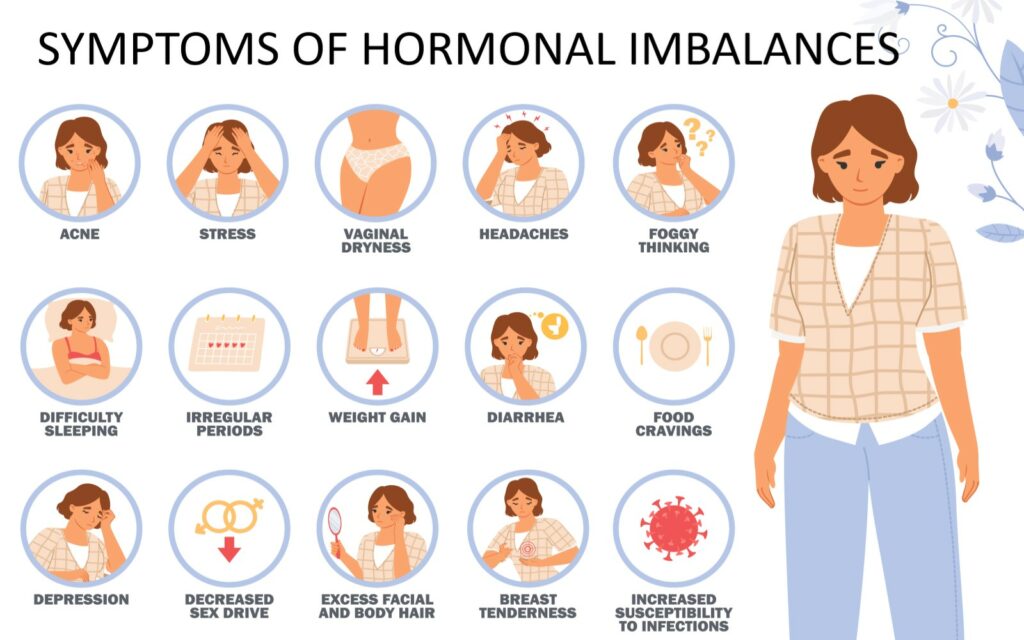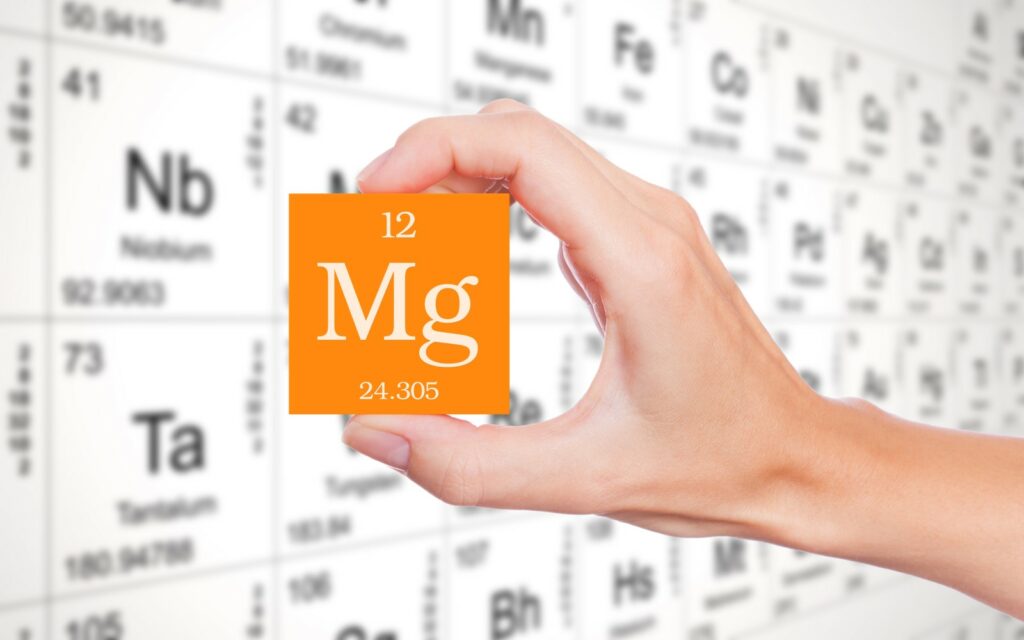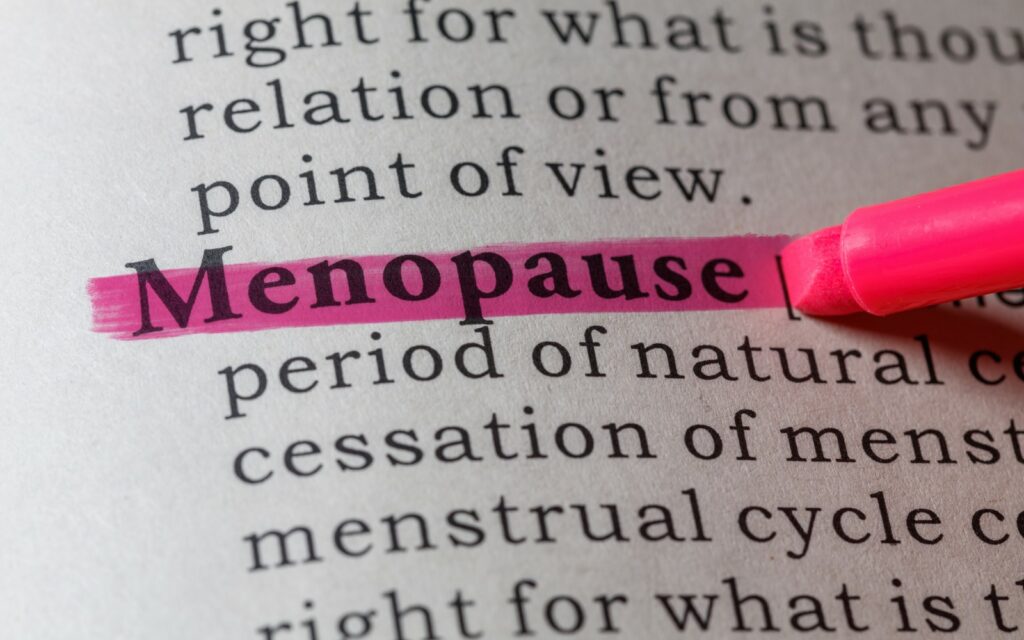
Many women may not be aware that their symptoms of hormonal imbalance could potentially stem from low magnesium levels. Even if you don’t have a magnesium deficiency, having suboptimal levels can still play a role in contributing to these symptoms.
Magnesium For Women’s Hormones
The day-to-day symptoms of low magnesium are frequently nonspecific, which is why many doctors may not immediately consider testing for magnesium levels. However, magnesium insufficiency is more prevalent than one might assume. It’s estimated that approximately two-thirds of the Western population and 68% of Americans do not meet their recommended daily magnesium intake.
Insufficient magnesium levels can impact various hormone systems, including thyroid hormones, pancreatic hormones and sex hormones.
To determine if your magnesium levels are influencing your hormonal symptoms, opt for tests that assess whole-body magnesium status. These tests will provide a comprehensive picture of your magnesium levels, helping you determine whether additional supplementation is necessary to ensure adequate magnesium intake.
Let’s explore further how magnesium plays a role in hormone balance.

Magnesium And Hormone Balance
Magnesium aids in the regulation of various hormones, including:
• Insulin
• Thyroid hormones
• Sex hormones oestrogen, progesterone and testosterone
• Cortisol
Insulin
Insulin, a hormone secreted by the pancreas in response to blood sugar levels, is regulated by magnesium. Magnesium plays a crucial role in controlling the release of insulin and maintaining blood sugar regulation. It is instrumental in keeping your body sensitive to insulin and preventing insulin resistance.
Based on a systematic review, it was determined that magnesium supplementation for over four months led to enhanced insulin sensitivity and improved fasting glucose levels in both healthy individuals and those with health issues.
Thyroid Hormones
Magnesium is essential for converting the inactive thyroid hormone (T4) into its active form (T3). Without this conversion, your thyroid won’t function properly. Since T3 affects every cell and organ in your body, adequate magnesium is vital for optimal thyroid function.
Sex Hormones
Magnesium plays a crucial role in the production of your steroid hormones (oestrogen, progesterone and testosterone) and adrenal gland hormones (cortisol and aldosterone). It does this through its role in cholesterol metabolism, enzymatic reactions and hormone receptor functions.
Cholesterol serves as the precursor to all your steroid hormones. Magnesium plays a crucial role in metabolizing cholesterol into pregnenolone. This process is vital for the synthesis of various essential hormones in your body.
Magnesium participates in over 300 enzymatic reactions, many of which are linked to the synthesis of your steroid hormones. Additionally, magnesium plays a pivotal role in activating hormone receptors, facilitating the binding of steroid hormones to their respective receptors. This process is crucial for the effective functioning of your hormonal system.
Cortisol
Magnesium possesses calming properties as it regulates the stress response, influences GABA levels, and helps manage cortisol levels. These effects contribute to its ability to promote relaxation and alleviate stress.
As mentioned earlier, magnesium is involved in the production of all steroid hormones, including cortisol from the adrenal glands. Additionally, it assists in the breakdown of cortisol and helps mitigate the effects of other stress hormones once stressful events have subsided. Thus, magnesium plays a crucial role in managing the body’s response to stress.
Magnesium And PMS

PMS (Premenstrual Syndrome) is often perceived as normal due to its widespread occurrence among women. However, it’s essential to recognize that magnesium deficiency is also prevalent and can significantly exacerbate PMS symptoms. Addressing magnesium levels can be beneficial in managing and improving PMS symptoms.
PMS symptoms can encompass various issues such as cramps, headaches, mood swings and more. Magnesium plays a vital role in relaxing the smooth muscles of the uterus and reducing prostaglandins responsible for discomfort, offering relief from these specific symptoms.
In addition to its impact on physical health, magnesium also influences mood. Its interaction with GABA receptors results in a calming effect, as GABA is an inhibitory neurotransmitter that promotes relaxation. Moreover, magnesium can affect the balance of other neurotransmitters, including serotonin, by modulating NMDA receptors, which play a role in neurotransmitter release. As a result, magnesium can have a positive impact on emotional well-being and mental health.
While it may not serve as a complete cure, magnesium, a basic mineral, can effectively alleviate PMS symptoms for most premenopausal women. Combining magnesium with other cofactors, such as vitamin B6, further enhances the results, providing additional relief from PMS symptoms.
Magnesium And Menopause

Just like its benefits for premenopausal women, magnesium can also be helpful for women experiencing menopause. Menopausal symptoms, such as hot flashes and declining bone density, are among the more common issues that magnesium can address and alleviate.
As part of the natural aging process and menopause, a decrease in oestrogen levels is expected and normal. This decline can result in menopausal symptoms like hot flashes, night sweats, and vaginal dryness, albeit to varying extents in different women. However, it’s essential to recognize that not all women experience these symptoms during menopause.
A low level of oestrogen should not be automatically considered detrimental. There is no evidence to suggest that women with lower oestrogen levels experience worse outcomes compared to those with higher oestrogen levels. Oestrogen levels can vary among individuals, and each woman’s unique hormonal balance should be considered within her overall health context.
Interpreting serum magnesium levels can be challenging due to the influence of higher stress levels. Stress can elevate serum magnesium and magnesium excretion, even when whole-body magnesium levels are being depleted. This complexity makes it important to carefully assess magnesium status while considering the impact of stress on these readings.
Serum magnesium levels do not accurately reflect whole-body magnesium status. In certain instances, elevated serum magnesium may indicate the need for magnesium supplementation to be beneficial. Consequently, a comprehensive assessment of magnesium status should include tests for intracellular magnesium levels, consideration of symptoms and evaluation of medical history.
Magnesium plays a vital role in maintaining bone health, as around 60% of magnesium is stored in the bones. Sufficient magnesium intake is essential for minimizing age-related bone loss. During menopause, when oestrogen levels decrease rapidly, osteoclasts—the cells responsible for breaking down bones—become more active, making magnesium intake even more critical to support bone density and health.
Best Magnesium For Hormone Balance

To enhance hormone balance through magnesium supplementation, selecting the appropriate forms of magnesium is crucial for increasing intracellular magnesium levels. It is within the intracellular environment that magnesium carries out the majority of its essential work, facilitating various biochemical reactions that contribute to hormonal equilibrium.
Less than one percent of the total body magnesium is found in your serum. Despite magnesium deficiency, your body strives to maintain a relatively stable level of serum magnesium. As a result, serum magnesium level is not the most reliable marker for assessing magnesium status in the body. Other indicators should be considered to accurately evaluate magnesium levels within the body.
On the contrary, magnesium levels inside cells, such as RBC magnesium, are more indicative of your overall magnesium status. These intracellular levels are a better representation of your total magnesium status in the body.
While a variety of magnesium supplements are available, not all of them effectively increase RBC (red blood cell) magnesium levels. For instance, while magnesium oxide is the most extensively researched form, its absorption rate is relatively low.
Chelated magnesium is a type of magnesium that is chemically bonded to an organic compound or an amino acid, examples of which include magnesium citrate and magnesium glycinate. On the other hand, non-chelated magnesium comprises magnesium oxide and magnesium sulfate. In general, chelated minerals exhibit increased bioavailability and are more efficiently absorbed through the small intestine into the bloodstream.
Furthermore, animal studies have indicated that various organic forms of magnesium deliver the mineral to distinct tissues. For instance, in rats, magnesium malate shows a higher delivery to muscles, while magnesium acetyl taurate demonstrates the highest delivery to the brain. Hence, numerous nutritionists and expert clinicians advocate the idea of consuming a combination of different forms of magnesium rather than relying on just a single form.
The most recent advancement in magnesium supplementation is sucrosomial magnesium, which boasts exceptional bioavailability. It leverages sucrose esters of fatty acids to deliver magnesium, resulting in enhanced solubility, absorption and overall bioavailability.
In a study, ten healthy participants were selected at random and administered 350mg of four distinct magnesium types (sucrosomial magnesium, magnesium oxide, magnesium citrate, and magnesium bisglycinate). Following a single dose, it was observed that Sucrosomial magnesium exhibited the most rapid absorption and highest bioavailability among all the other magnesium forms at the 24-hour mark.
Considering the information presented, the optimal magnesium supplement for hormone balance should incorporate Sucrosomial magnesium. Furthermore, to target different tissues effectively, a combination of various magnesium forms should be included. Ideally, if the supplement also contains essential cofactors, it can further enhance the effectiveness of magnesium.
BIOoptimizer’s Magnesium Breakthrough is a product that delivers all these ingredients. It provides the 7 best-absorbed forms of magnesium in a humic/fulvic blend along with cofactors vitamin B6 and manganese. It is the perfect magnesium supplement to support your hormone balance.
Conclusion
If you are currently dealing with PMS symptoms or menopausal symptoms, supplementing with additional magnesium could prove beneficial. Low magnesium levels are more prevalent than you might realize and could potentially play a role in your hormonal symptoms.
Given that meeting the daily minimum magnesium requirement can be challenging, resorting to magnesium supplementation becomes a viable and effective approach to ensure you maintain optimal magnesium levels.


